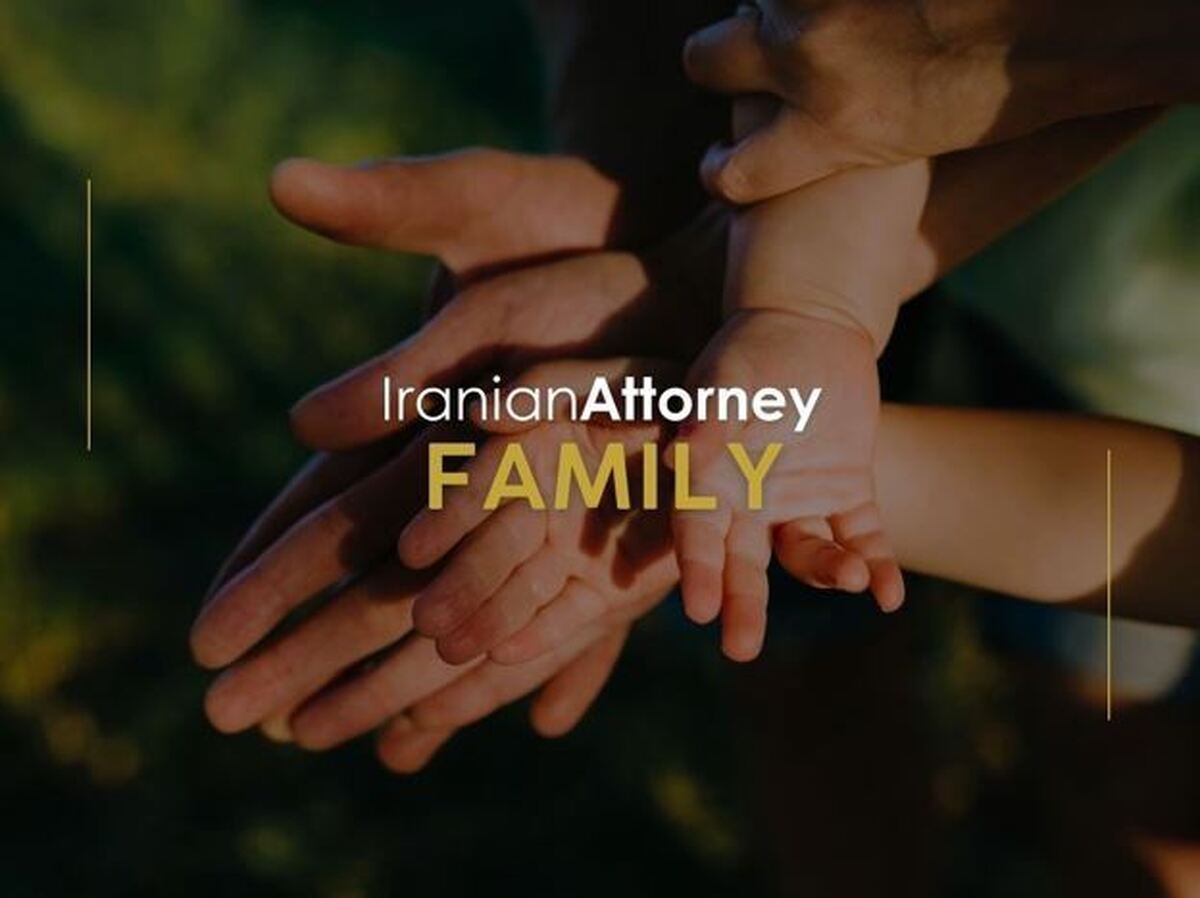Iranian Family Lawyers & Their Responsibilities in Family Growth

IranianAttorney.org - Iranian Family Lawyers are legal professionals who specialize in addressing the unique legal issues and challenges that families and individuals of Iranian descent may encounter. They offer comprehensive legal services in matters such as child custody, spousal support, property division, and prenuptial agreements, among others. Persian family lawyers play a crucial role in guiding their clients through the complexities of family-related legal issues while respecting and preserving the cultural aspects that may be intertwined with these matters.
Empowering Women and Gender Equality:
One significant shift in the role of Iranian Family Lawyers is their active involvement in empowering women and advocating for gender equality within the family. Traditionally, Iranian family law has favored men in various aspects, such as custody decisions. However, Persian Family Lawyers are increasingly challenging these norms and advocating for more equitable outcomes.
Iranian Family Lawyers play a pivotal role in representing women seeking separation and negotiating fair settlements that protect their rights and interests. They also work to change societal perceptions and legal structures that may perpetuate gender inequalities within the family.
Addressing Domestic Violence and Abuse:
Domestic violence remains a significant concern in Iranian society, affecting many families. Iranian Family Lawyers are on the front lines of addressing this issue by providing legal support to victims and pursuing legal actions against perpetrators.
These lawyers help victims obtain restraining orders, secure protective custody for vulnerable family members, and advocate for the safety and well-being of their clients. By actively combating domestic violence, Persian Family Lawyers contribute to creating safer family environments.
Child Welfare and Advocacy:
The welfare of children remains a top priority for Iranian Family Lawyers. They work tirelessly to ensure that the best interests of children are protected, regardless of the complexities of family dynamics.
Child custody disputes often require delicate negotiations and legal expertise to reach amicable solutions. Persian Family Lawyers advocate for joint custody arrangements when it is in the child's best interest and provide support and representation to parents seeking fair custody outcomes.
Roles and Responsibilities of Family Lawyers:
Legal Counsel and Advocacy: The primary role of Iranian Family Lawyers is to provide legal counsel and advocacy to their clients in family-related matters. This includes assisting clients in understanding their legal rights and responsibilities, explaining the legal implications of their choices, and representing them in court if necessary.
- Mediation and Conflict Resolution: Family lawyers often serve as mediators, facilitating discussions between family members to resolve disputes amicably. They guide negotiations, encourage compromise, and work towards mutually acceptable solutions. Mediation is particularly crucial in family matters to maintain family harmony.
- Marriage Contracts and Dissolution: Persian Family Lawyers assist clients in drafting marriage contracts that outline the rights and responsibilities of each spouse. They also handle separation cases, guiding clients through the legal procedures for annulment, or separation.
- Child Custody and Support: Child custody disputes are a significant part of family law in Iran. Family lawyers advocate for the best interests of children, helping parents reach custody agreements or representing them in court to secure a favorable outcome for their children.
- Property and Financial Matters: Iranian Family Lawyers handle issues related to marital property, including the division of assets during separation. They also address financial matters, such as spousal support and the financial responsibilities of parents towards their children.
- Adoption and Guardianship: In cases of adoption or guardianship, family lawyers assist clients in navigating the legal requirements and processes involved in providing care and support to children who are not biologically related to them.
- Legal Documentation: Family lawyers are responsible for preparing and filing legal documents, petitions, and applications required for various family-related legal proceedings.
Challenges Faced by Family Lawyers:
While Iranian Family Lawyers play a vital role in resolving family matters, they encounter several challenges:
- Cultural Sensitivities: Iranian society is deeply rooted in cultural traditions and values, which can sometimes conflict with modern legal principles. Family lawyers must navigate these sensitivities while advocating for their clients' rights.
- Complex Legal Framework: The blend of civil law, Islamic law, and cultural norms creates a complex legal framework that demands a deep understanding of various legal systems.
- Gender Roles: Traditional gender roles can influence family dynamics and legal outcomes. Family lawyers must be sensitive to these roles while promoting equitable solutions.
- Emotional Toll: Family matters often involve emotional turmoil for the parties involved, including children. Family lawyers must provide emotional support and guidance to their clients while maintaining professionalism.
Mediation in Family Law:
Mediation is a prominent feature of Iranian family law, and family lawyers frequently encourage its use. Mediation helps families find amicable solutions to disputes, preserve relationships, and reduce the emotional toll of legal proceedings. Iranian Family Lawyers often act as mediators, guiding families towards mutually acceptable agreements. Mediation in Iranian family law typically follows these steps:
- Selection of a Mediator: The parties involved, such as spouses in a separation or parents in a custody dispute, agree to work with a qualified and neutral mediator.
- Initial Meetings: The mediator conducts initial meetings with each party separately to establish trust, explain the mediation process, and set ground rules for respectful communication.
- Joint Mediation Sessions: Joint mediation sessions bring all parties together to discuss the issues at hand, such as child custody, property division, or financial support. The mediator facilitates these discussions.
- Child-Centered Approach: Mediators prioritize the best interests of the child, encouraging parents to consider the child's needs, emotional well-being, and preferences when negotiating agreements.
- Negotiation and Agreement: Through negotiation, parties work together to reach agreements that address their concerns and the needs of all family members. The mediator helps facilitate compromise and resolution.
- Formalizing Agreements: Once agreements are reached, the mediator formalizes them into legally binding documents. These documents may include separation settlements, custody agreements, or financial support arrangements.
The Future of Iranian Family Law:
Iranian Family Lawyers face a changing landscape in family law, influenced by evolving societal norms, technological advancements, and ongoing legal reforms. The role of these lawyers is expected to adapt in the following ways:
- Technological Integration: Family lawyers are increasingly incorporating technology into their practice, including digital case management, online consultations, and electronic documentation.
- Awareness and Advocacy: As societal norms evolve, family lawyers are likely to engage in advocacy for legal reforms that align with contemporary values and promote gender equality within the family.
- Mediation as a Preferred Method: Mediation is expected to continue as the preferred method for resolving family disputes, with family lawyers taking on a more prominent role as mediators.
- Child Welfare Focus: The well-being of children will remain central to family law, with family lawyers advocating for the best interests of children in all family matters.
Iranian Family Lawyers:
Iranian Family Lawyers are integral to the functioning of the legal system and the preservation of family harmony in Iran. They navigate a complex legal landscape, balance cultural sensitivities, and prioritize the best interests of their clients and their families. As Iranian society evolves, so too will the role of family lawyers, ensuring that family law remains relevant and equitable in addressing the diverse needs of families.
Disclaimer: This article is for informational purposes only and does not offer any legal advice.
4155/MAG





















